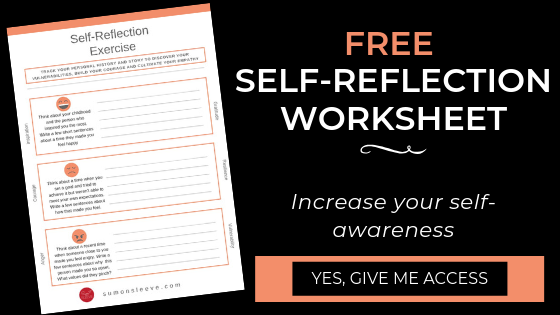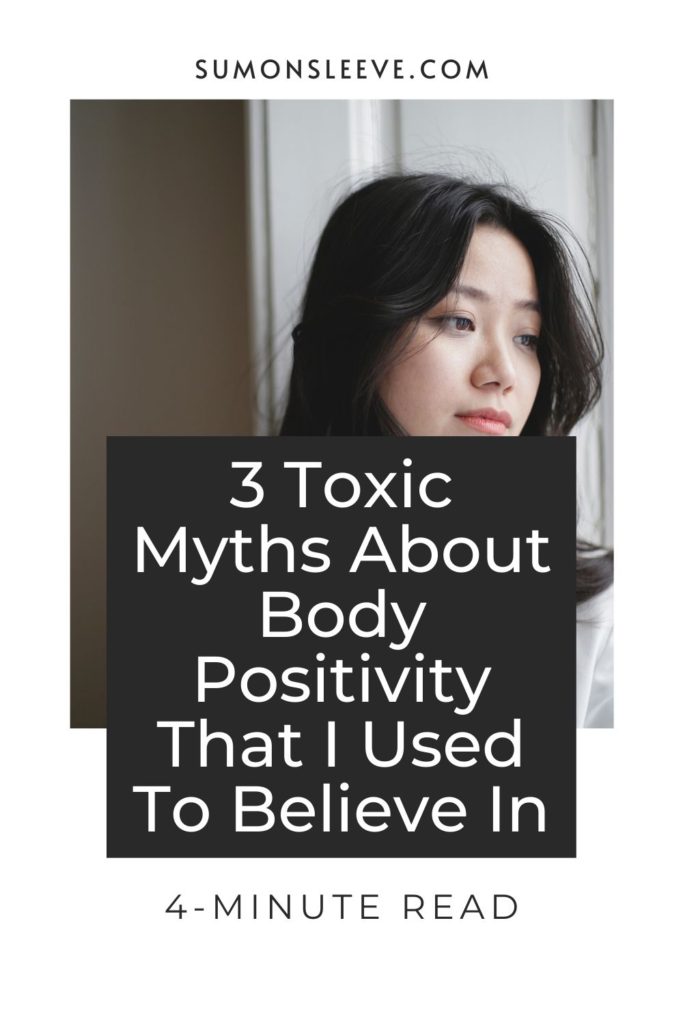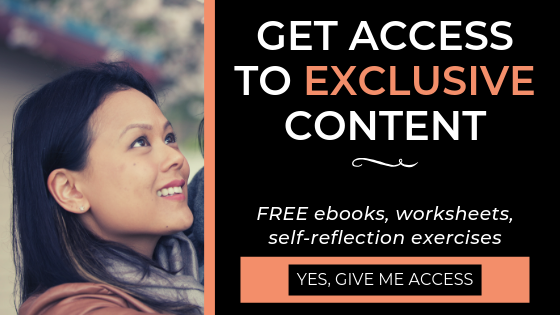"I have to lose weight in order to love myself." Feeling good and looking good are different things. No one told me what body positivity was until I debunked these toxic myths.

Growing up, I struggled to love myself. From social pressures, the media to overly critical family members who constantly compared me to my skinnier peers, I never felt like my body was good enough.
I went on my first diet when I was 8 years old. My plan was to skip breakfast, eat half my lunch and only vegetables for dinner. I failed miserably.
Then as I entered my teen years, I developed an eating disorder that consisted of dangerously restrictive diets, bingeing and purging and extreme workouts. In my young adult years, it became chasing the latest fad diet and buying anything to lose weight. I hated my body and I didn’t know how to love myself from the inside out.
It wasn’t until my late 20’s when I started my recovery journey, completely shifting my mindset and changing how I viewed myself. I stopped yo-yo dieting, emotionally eating, using exercise as punishment whenever I ate a donut and no longer cared about other peoples’ opinions.
Looking back, the part that was driving my desperate desire to lose weight was based on a lack of understanding and awareness about body positivity. This concept didn’t exist during my vulnerable years of adolescence. Without being properly informed, I filled in the gaps with toxic beliefs to feel good in my skin. Here are 3 myths about body positivity that I used to believe in.
1. I have to lose weight in order to become body positive
For most of my life, the scale was my best friend and worst enemy depending on what it told me. I used to weigh myself every day. Just like the stock market, I watched the number rise and fall as my emotions followed.
Whenever my weight was down, I felt a temporary high. That feeling was what I thought being body positive meant. The number determined how good I felt about my body and the lower it was, the more positive I felt.
Having a goal weight was a barrier to loving myself. The problem with this was that even when I reached it, I was still unhappy inside. There would be a fleeting moment of happiness but within a day, I would see a model on TV or a family member would make a comment about what I was eating, and it would trigger me to hate myself all over again. There was no end if I kept trying to lose weight.
The truth is that achieving body positivity is a holistic approach that works from within, loving myself from the inside out. Weight loss is merely a potential byproduct of the journey.
It took a lot of self-work, digging deep into myself, uncovering stories that shaped my self-limiting beliefs, reprogramming my mindset, shedding toxic habits, creating and adopting healthy behaviours, and replenishing myself with empowered thoughts. I stopped looking at the scale. Even during both my pregnancies, I asked my doctor not to say anything unless there was an issue with my weight.
Ultimately, there is no number that defines body positivity.
2. All skinny people are body positive
Comparing myself to my girlfriends was something I did every time we hung out. I hated being the “bigger one” in the group. I would hear a friend complain about how big her nose was or another friend complain about how small her breasts were; however, all I could think of was that they were skinnier than me and that whatever they were self-conscious about didn’t compare to how bad I felt about myself.
I was so focused on my body size, shape and weight that I couldn’t empathize with the women around me who were also struggling to love themselves.
Learning to love who I am and having compassion for others go hand in hand. The truth is body positivity isn’t about how someone looks; it’s about how someone embraces every bit of who they are, doesn’t care about what others think, lives their life authentically and stays true to themselves.
3. All fat people are insecure about their bodies
From The Nutty Professor, Shallow Hal to Monica’s fat suit, I grew up during a time when fat people were shamed and skinny people were praised. I had fatphobia. Chubby, overweight, chunky, round, thick, big-boned, stocky, bootylicious, heavy…I was afraid of being called these words. It meant I was fat.
If I saw someone who was either my size or bigger than me, I always assumed they were also unhappy and wanted to lose weight.
The truth is when I made assumptions about someone’s insecurities, what I was actually doing was projecting my own onto someone else as an attempt to validate my self-doubt. And the more I projected, the stronger those insecurities took control of my mind and the worse I felt about myself.
What I needed to do was face my insecurities head-on so they would lose their grip over me, remove assumptions about others and let my true self shine. Confronting my fatphobia allowed me to appreciate the different shapes and sizes that human beings come in, redefining what I love about myself not based on beauty standards, social expectations, the media or really, anything else except what’s true to me.
Once I was able to scrub myself clean of these toxic beliefs, I was able to discover my self-worth and truly love myself from the inside out. As a mother, I am hopeful the future will be different for the next generation. And I think sharing my story across the globe is a pretty good start.





